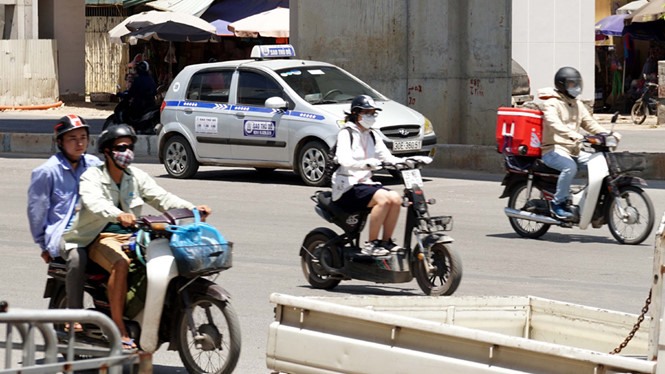 Environment
Environment

There is no evidence to show that northern Viet Nam’s recent record-breaking hot weather--the hottest in 45 years--will repeat again this summer, Lê Thanh Hải, Deputy General Director of the National Hydro-Meteorological Centre, told Sức khỏe & Đời sống (Health and Life) newspaper.
 |
| Hanoians last week suffered the most scorching heat wave in 45 years. – Photo VNA/VNS |
HÀ NỘI – There is no evidence to show that northern Viet Nam’s recent record-breaking hot weather--the hottest in 45 years--will repeat again this summer, Lê Thanh Hải, Deputy General Director of the National Hydro-Meteorological Centre, told Sức khỏe & Đời sống (Health and Life) newspaper.
Although other heat spells will likely continue to occur throughout this summer, it is unlikely that temperatures will hit 40 degrees Celsius again in northern provinces, Hải said.
"The climate is currently in an intermediate state, not El Nino, so the possibility that north Việt Nam will suffer extreme heat spells during this year’s summer is not high," Hải said.
He added that the centre predicts an average of three heat spells per month during June and July. Last week’s heat spell was the first in June, and there may be two more heat waves from now to the end of the month.
Last week’s heat wave occurred on a large scale in the north and provinces from Thanh Hóa to the central coastal province of Phú Yên, where the highest temperatures ranged from 35 to 37 degrees Celsius.
In Hà Nội, the temperature reached 41-42 degrees.
Hải called last week an extreme weather phenomenon and therefore difficult to predict.
The main reason was the influence of low air pressure in the west, which usually occurs in the summer. Additionally, a rare hot, dry wind in the west and urbanisation in cities helped drive the temperature up, he said. – VNS




